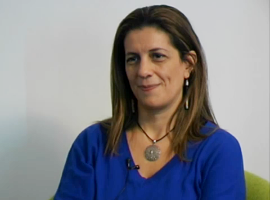InfoQ Homepage Software Craftsmanship Content on InfoQ
-
Crista Lopes on Constraints and Styles of Programming
Crista Lopes discusses the idea of using constraints to define styles of programming and architecture. Also: large scale static analysis of open source code, Open Simulator and VR, and much more.

-
Andrew Prentice and Jo Cranford on Testing and Development at Atlassian
Andrew Prentice and Jo Cranford talk about testing and development approaches at Atlassian, in particular the role of Quality Assistance and approaches to effectively testing JavaScript.

-
Neil Killick on No Estimates
Neil Killick discusses his background in Agile and his thoughts on estimation in Agile software projects, in particular the discussion around #noestimates.

-
Gojko Adzic on integrating business iterative delivery using Impact Mapping
Gojko Adzic talks about the need to iterate and learn about business value before jumping into solutions. Impact Mapping helps visualize and learn which behavior changes impact business results. Those changes might not even require any kind of software delivery.
-
Brandon Carlson on Measurement, Professionalism and Fearing Our Customers
Brandon Carlson discusses his Agile journey, measurement and some code metrics tools he is working on. He also shares his views on professionalism and the importance of not fearing your customers.
-
Jim Highsmith on Adaptive Leadership
Recorded at the 10th anniversary of the agile manifesto signing, Jim Highsmith discusses how he works with executive management teams to introduce and integrate agile techniques into enterprise organizations from both the business and IT sides. He defines adaptive leadership and discuses adaptive ALM, continuous delivery, lean and Kanban methods.

-
The Seven Deadly Sins of Enterprise Agile Adoption
Are there repeated patterns of failure on Enterprise Agile Enablement efforts? Does success at the team level always result in success at the organization level? Sanjiv Augustine and Arlen Bankston discuss the Seven Deadly Sins that organizations repeatedly make so you can steer clear of them and benefit from a successful Enterprise Agile Adoption.

-
Brian Foote on the State of OOP, Refactoring, Code Quality
Brian Foote looks back at the promises of OOP and discusses which, if any, of them became reality. Also: a look at NoSQL, refactoring and code quality, testing and static typing and more.

-
Jeff Patton on the Product Owner’s World
In this interview, Jeff Patton discusses the Product Owner role and points out that Agile has never been very focused on the customer. While Agile development excels at “delivery”, it struggles to support “discovery” (i.e. defining what the customer really needs). Also discussed are techniques such as Lean Startup and story maps and the importance of defining business value in an Agile context.

-
Andrew Hunt on Pragmatic Programming
InfoQ sits down with Andrew Hunt, one of the original Agile Manifesto signatories, to discuss how Agile has diverged from the original vision and how pragmatic programming has evolved. Andy discusses CoffesScript, Arduino, and HTML5 and he shares his views on the effectiveness of pair programming, Agile testing methods and other practices.

-
Jez Humble on Continuous Delivery
In this interview at Agile 2011, Jez Humble discusses continuous delivery and the deployment pipeline, emphasizing the importance of feedback and automating tests at every level to validate deployments. Gone are the days of massive acceptance test scripts. He also talks about the evils of feature branching, and speaks on the DevOps practices to collaborate all the way through the delivery cycle.

-
Mik Kersten on the Role of Tasktop and Mylyn in Agile Development
Mik Kersten discusses the role of Mylyn and Tasktop in Agile development and how these tools return control to developers. Also: how Mylyn streamlines development in Eclipse.
